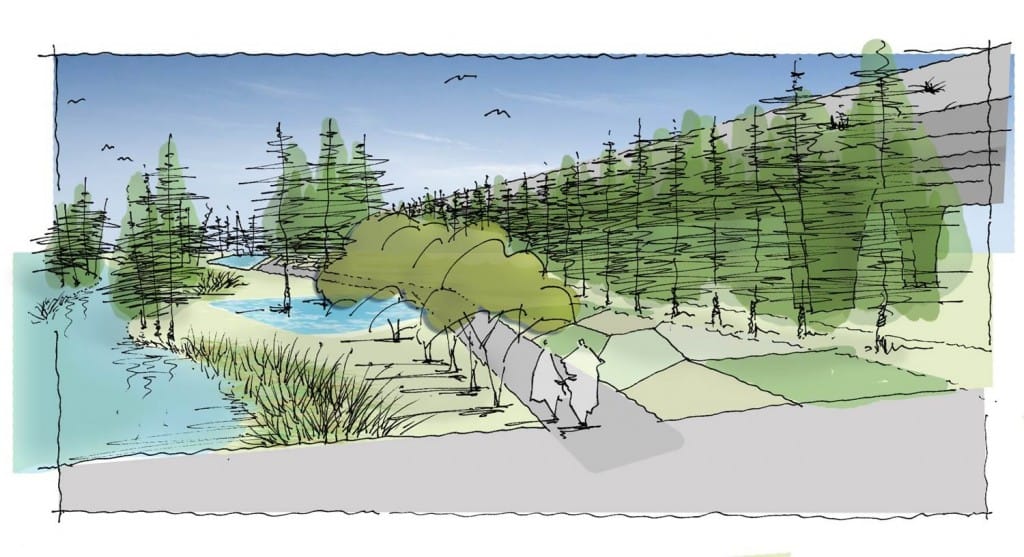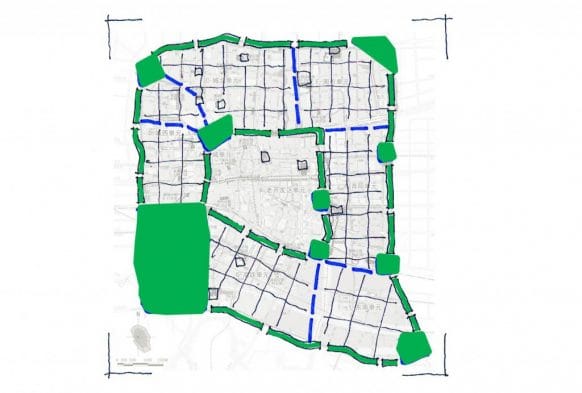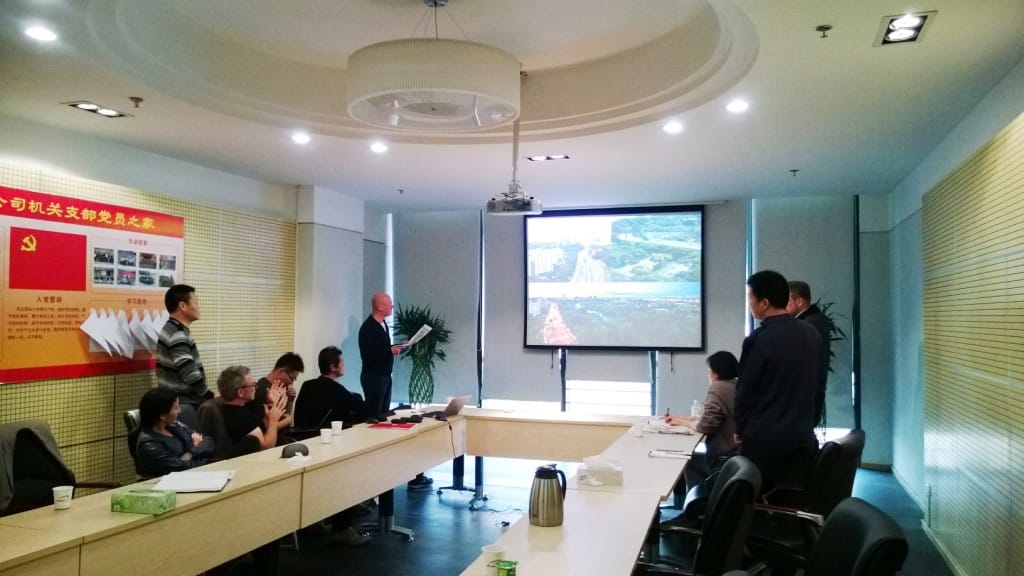Creating an urban mosaic in the City of Kunshan
The CRC for Water Sensitive Cities (CRCWSC) held its first incubator workshop with the City of Kunshan, the CRCWSC’s first incubator city in China, between 8-11 March 2014.
During the 4-day intensive workshop, the CRCWSC team inspected key sites and developed a conceptual city-wide open space strategy that aims to provide the city with ecosystem services by improving water quality, enhancing landscape connectivity, creating biodiversity, introducing food production into the landscape, and influencing the urban microclimate. The strategy addresses current and emerging issues in the City of Kunshan that are typical of many Chinese cities. These issues are associated with the degrading ecological health and biodiversity of urban open spaces and waterways, emerging criticality in the progressive loss of arable land, the progressive cultural disconnect of local food production in Chinese communities, and increasing vulnerability to floods and urban heat.

 Ecosystem services will be delivered by embedding four elements (water, forest, food and culture) into functional open spaces, and therefore creating an urban mosaic of ecological landscapes for the city. Each functional open space will have its own hierarchy and emphasis in terms of the four elements, responding to specific local context and the size of land parcel itself. One inner-ring ecological corridor is proposed to be created through the restoration of existing waterways, and one outer-ring ecological corridor is proposed to be created along the corridor of an elevated city ring road currently being constructed. These two proposed ecological corridors will link key open spaces and provide city-scale landscape connectivity that frames the future implementation of internal blue and green corridors with the many polders within the city.
Ecosystem services will be delivered by embedding four elements (water, forest, food and culture) into functional open spaces, and therefore creating an urban mosaic of ecological landscapes for the city. Each functional open space will have its own hierarchy and emphasis in terms of the four elements, responding to specific local context and the size of land parcel itself. One inner-ring ecological corridor is proposed to be created through the restoration of existing waterways, and one outer-ring ecological corridor is proposed to be created along the corridor of an elevated city ring road currently being constructed. These two proposed ecological corridors will link key open spaces and provide city-scale landscape connectivity that frames the future implementation of internal blue and green corridors with the many polders within the city.
This open space strategy, underpinned by water sensitive urban design, will establish important and functional green infrastructure to support and sustain the City’s future economic growth and liveability. The current construction of the elevated ring road presents an immediate opportunity to implement this ecological concept as part of the corridor rehabilitation following the construction of the road. The concept was presented to the City of Kunshan at the conclusion of the workshop and immediately embraced. The CRCWSC has been asked to work with the City’s landscape consultant to develop the priority list for design of ecological landscape pieces for implementation in early 2015.

The CRCWSC team members that participated in this research synthesis workshop were Professor Tony Wong, Dr Peter Breen, Jon Shinkfield, Dr Leah Beesley and Jianbin Wang, working in conjunction with researchers from Southeast University, officers from Kunshan City-construction Investment and Development Company (KCID) and the Planning Bureau of the City of Kunshan, together with their consultants.